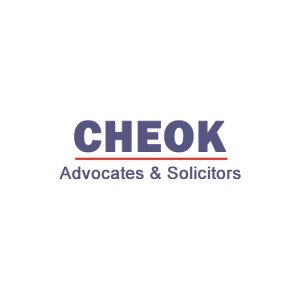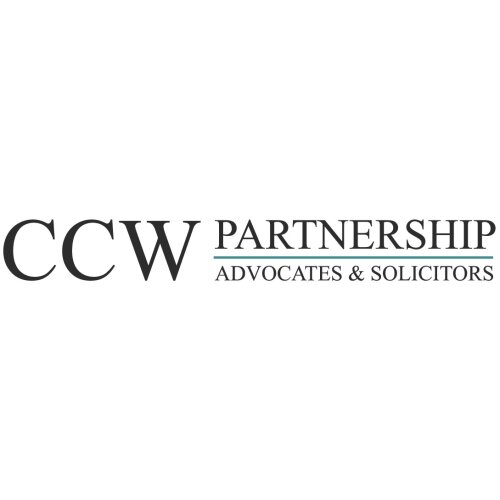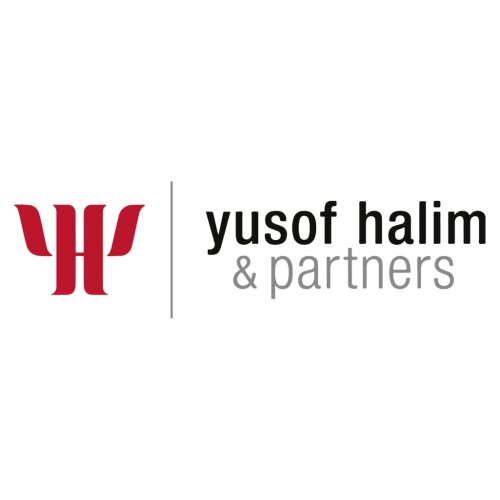Best Tax Increment Financing Lawyers in Brunei
Share your needs with us, get contacted by law firms.
Free. Takes 2 min.
Or refine your search by selecting a city:
List of the best lawyers in Brunei
About Tax Increment Financing Law in Brunei
Tax Increment Financing (TIF) in Brunei is a financial tool used to stimulate economic development within designated areas. This approach hinges on the principle of capturing future tax benefits of increases in real estate values to finance current improvements. TIF is generally utilized for urban renewal projects and infrastructure developments that aim to boost economic growth and add value to the area. While TIF is a relatively new concept in Brunei, it has gained attention as a viable method to support sustainable development by collaborating effectively between public and private sectors to revitalize underdeveloped areas.
Why You May Need a Lawyer
Tax Increment Financing involves complex financial structures and legal intricacies that necessitate professional legal guidance. Common situations where someone might need legal assistance include:
- Negotiating terms and conditions of TIF agreements between public authorities and developers.
- Understanding the compliance and regulatory framework surrounding TIF projects.
- Resolving disputes related to property taxes and increment calculations.
- Advice on eligibility and securing approvals for TIF funding.
- Preparing legal documents and contracts involved in TIF-financed developments.
Local Laws Overview
The legal framework for Tax Increment Financing in Brunei is framed within the broader context of its land and development laws. Key aspects include:
- The Land Code and related regulations govern land usage, redevelopment rights, and property taxation.
- Partnerships between municipalities and private developers need adherence to public financial management standards set by local authorities.
- Compliance with environmental regulations is essential when implementing TIF projects.
- TIF financing structures must be transparent and accountable, requiring rigorous documentation and monitoring.
Frequently Asked Questions
What is Tax Increment Financing (TIF)?
TIF is a public financing method that captures the projected increase in tax revenue from an improvement project to fund current development activities.
Who can initiate a TIF district in Brunei?
Typically, local governments or municipalities are responsible for initiating TIF districts, often in collaboration with private developers or investors.
What types of projects can be financed through TIF?
TIF is commonly used for urban redevelopment, infrastructure improvement, affordable housing, and environmental remediation projects.
How does TIF benefit local communities?
TIF promotes economic growth by enhancing infrastructure, creating jobs, increasing property values, and improving public services without increasing taxes upfront.
Are there risks associated with TIF?
Risks include potential over-reliance on future tax revenues, misalignment of project goals, and disputes over increment calculations. Proper planning and legal guidance can mitigate these risks.
Is TIF funding considered debt?
No, TIF funding is not typically considered debt in a conventional sense but is a commitment of future tax revenues.
How long does a TIF district last?
The duration of a TIF district is generally set by local laws and can vary, but it typically ranges from 15 to 30 years.
Can taxpayers oppose a TIF project?
Yes, public hearings and consultations are usually required, giving taxpayers the opportunity to voice their concerns or objections.
How is the increment in taxes calculated in a TIF district?
Tax increments are calculated based on the difference between the current property tax assessments and the anticipated value post-development.
Are there any restrictions on the type of expenses that TIF can cover?
Yes, TIF funds are usually restricted to public improvements and cannot typically be used for operating expenses or private developments without public benefits.
Additional Resources
For further assistance and information, the following resources can be helpful:
- The Land Department: Provides guidelines on land usage and redevelopment laws.
- The Department of Economic Planning and Statistics: Offers data and projections vital for evaluating TIF projects.
- The Local Development Authority: An essential contact for understanding public-private partnerships.
- Legal practitioners specializing in land and financial law can provide tailored advice.
Next Steps
If you need legal assistance in Tax Increment Financing, consider the following steps:
- Identify and consult with a lawyer specialized in finance and land development law to understand your legal position and requirements.
- Gather all relevant documentation, including proposals, contracts, and tax assessments, to present to your legal advisor.
- Schedule a consultation with the appropriate governmental agencies to understand their requirements and approval processes.
- Join seminars or workshops focused on urban development and TIF-related topics to stay informed about best practices and emerging trends.
Lawzana helps you find the best lawyers and law firms in Brunei through a curated and pre-screened list of qualified legal professionals. Our platform offers rankings and detailed profiles of attorneys and law firms, allowing you to compare based on practice areas, including Tax Increment Financing, experience, and client feedback.
Each profile includes a description of the firm's areas of practice, client reviews, team members and partners, year of establishment, spoken languages, office locations, contact information, social media presence, and any published articles or resources. Most firms on our platform speak English and are experienced in both local and international legal matters.
Get a quote from top-rated law firms in Brunei — quickly, securely, and without unnecessary hassle.
Disclaimer:
The information provided on this page is for general informational purposes only and does not constitute legal advice. While we strive to ensure the accuracy and relevance of the content, legal information may change over time, and interpretations of the law can vary. You should always consult with a qualified legal professional for advice specific to your situation.
We disclaim all liability for actions taken or not taken based on the content of this page. If you believe any information is incorrect or outdated, please contact us, and we will review and update it where appropriate.
Browse tax increment financing law firms by city in Brunei
Refine your search by selecting a city.














